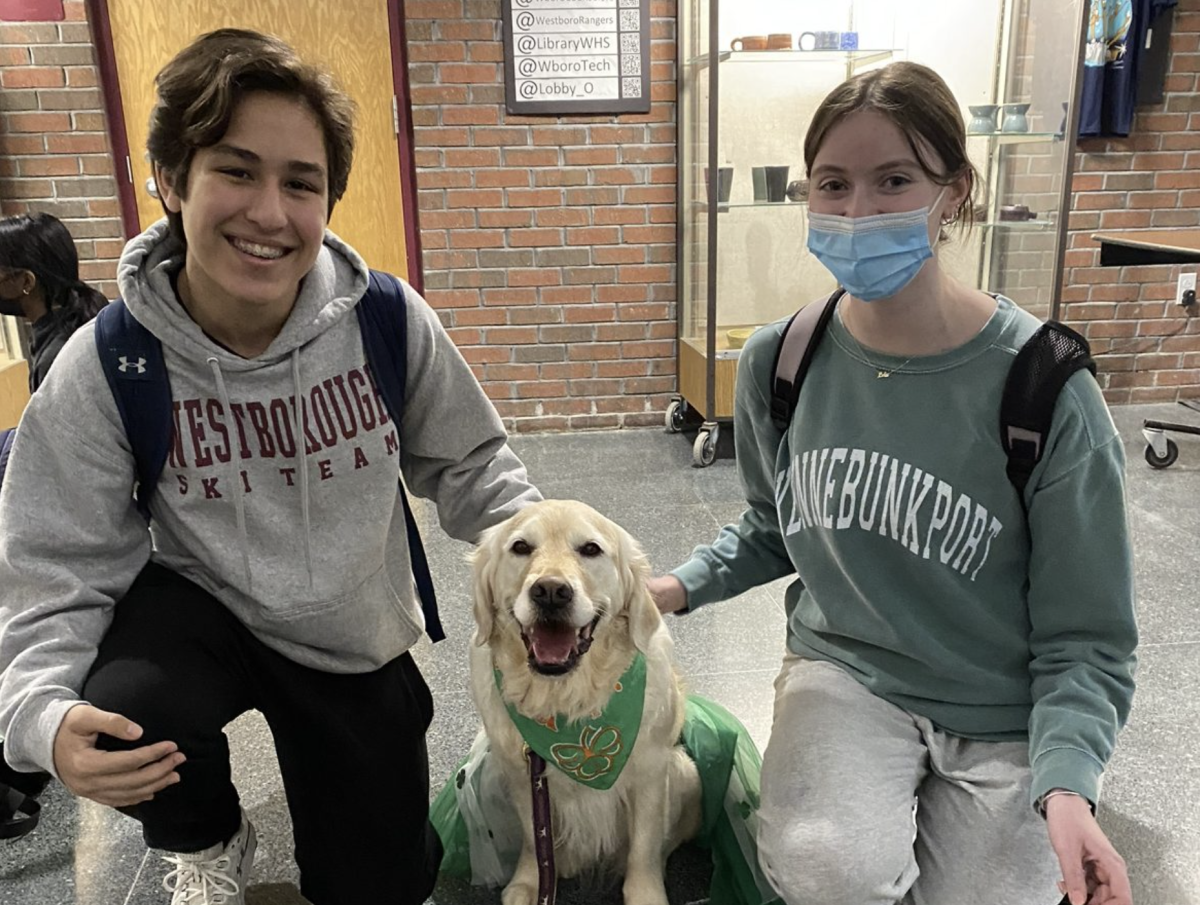Therapy animals are notorious for being, well, therapeutic. But what makes dogs, specifically, so special in their field? According to a study conducted by Georgia Southern University, therapy dogs have been shown to offer physiological, emotional, social, and physical support mainly in children. The main success is in children because of their ability to open up more easily to animals. Another piece that plays into this is how the therapy dogs are calm and nonjudgmental.
With therapy dogs come to different terms, depending on what the dog does. Animal Assisted Activities (AAA), are mainly used for motivational, educational, and recreational benefits, in order to enhance the quality of life. The dogs are “delivered” by volunteers or trained professionals with animals that must meet certain standards. The “visits” consist of no specific goal. Another “level” within therapy dogs is Animal Assisted Education (AAE). The point of the visit with this dog is goal-oriented with planned intervention. It is directed by a general or special education professional. There is also Animal Assisted Intervention (AAE). The hoped outcome is for a planned and goal based therapeutic intervention that is directed by human service providers as part of their job. The dog must meet certain criteria, which is important for the treatment process. It is also important to note that the term “Pet Therapy” is most often avoided because it is inaccurate and can be misleading.
Within these there are different levels of care, with four distinct categories of what the dog is trained and specialized in. A certified therapy dog provides comfort and affection. Their handlers are volunteers that visit hospitals, schools, nursing homes and more. Service Dogs are individually trained by someone other than the owner, to work and perform tasks for people with specific disabilities. For example, a person with a service dog could suffer from being blind, deaf, or has PTSD. They also help those that require mobility assistance. These dogs are considered working animals NOT pets. Emotional Support Dogs are what many are most familiar with. It is a pet that provides therapeutic support to someone with emotional or mental illness. They must be prescribed by a licensed mental health professional. While seemingly similar to a service dog, these dogs do not have the same rights to public access. Emotional support dogs are still allowed on planes when accompanied by the owner, and can live in different locations covered by the Fair Housing Amendments Act (FHAA). Lastly, there are Facility Dogs. Facility dogs are regularly present in a residential or clinical setting. They DO NOT have special rights in public unless they are accompanying/supporting someone with a disability. These dogs must also receive special training like the rest.
Here at Westborough, we are fortunate enough to have dogs that come in during lunch periods. It is important that we respect their boundaries and listen to the owner when asked to do so. If we as a school keep up with this we can still benefit from them coming here, and using them as supports.
Sources:
Review of the Research: Are Therapy Dogs in Classrooms Beneficial?








